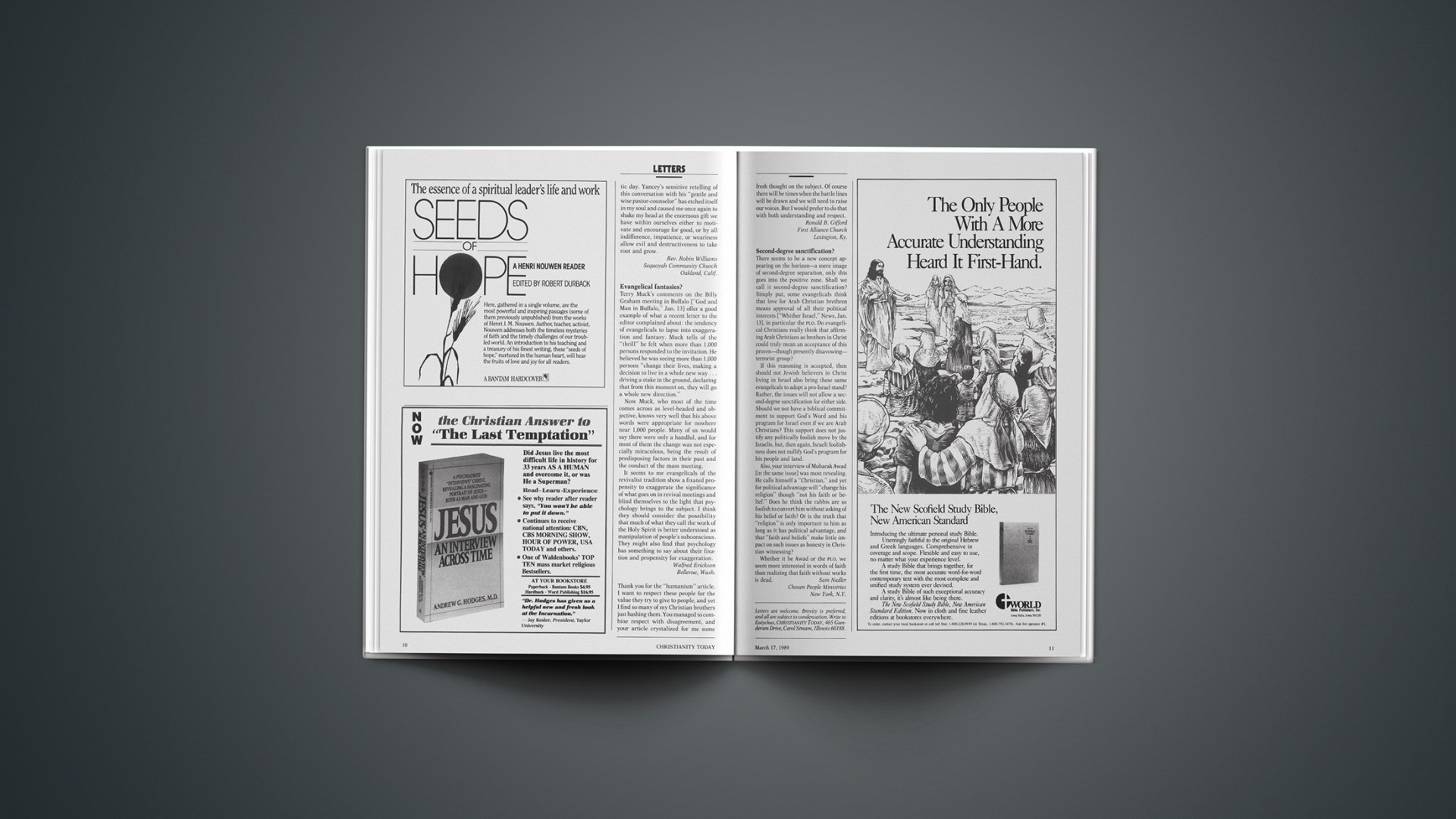A few months ago, CT senior writer Rodney Clapp wrote that it is important to lodge our biological family membership within our more primary identity as redeemed members of God’s international family, the church (Sept. 16, 1988). About the same time I came across a vivid example of the point he was making.
I was invited one morning to meet the wife of a South African theologian who was on a lecture tour of the United States. This woman had been working to improve the status of black South African domestic workers and hoped to raise further support for this work while in America. I was eager to accept the invitation since I knew from other sources how rare it is for white Afrikaner women to question their own state of privilege. “What it comes down to,” wrote one South African academic, “is that women are so accustomed to the idea of men taking leadership that they never learn to think for themselves.… On the whole, I don’t think Afrikaner women understand the implications of apartheid or think very much about it. We have produced a race of women in blinders” (see “Voices from a Troubled Land,” CT, Nov. 21, 1986).
The woman I met over coffee was no flaming political radical. She was, in some ways, the epitome of the middle-class pastor’s wife: carefully dressed, mild mannered, and (in her own words) “not a theologian, just a housewife—no, I mean a Christian first, then a housewife.” With that telling self-description she launched the story of her project.
Over a decade ago she and some fellow churchwomen were led to find a way to raise the self-esteem and economic independence of the many black women domestics who worked in the white homes of their city. But what, as unwaged homemakers themselves, could they do to achieve these goals? Soon the answer came: They could set up a dressmaking and tailoring school in the church, to which the women could come during their time off.
Even in industrialized South Africa, quality manufactured clothing is still quite expensive. So when people acquire sewing skills, they can save on the cost of their own family’s clothing and also earn income making clothing for others. The local church understood the potentially subversive implications of the proposed school and resisted it. Not only would it mean racial mingling on church property (unheard of at the time), but it would also “give ideas” to the black women about “rising above their station.”
Nevertheless, cautious permission was finally given, but with little support other than the use of the church hall. Undaunted, the white homemakers dug into their own sewing supplies, canvassed fabric dealers for cloth remnants, and persuaded sewing-machine manufacturers to donate equipment. They began classes catering to various levels of sewing ability, closing each one with a period of prayer and Bible study.
Twelve years later, between one and two thousand women have acquired basic or higher-level sewing skills in this informal school, which is still housed in a church, and still run on a shoestring by women who are “Christians first, and housewives second.” So successful has the venture been that the school may soon sign a contract to manufacture gym uniforms.
Running such a project is satisfying, but hardly romantic work, according to my informant. Often the teachers feel their efforts are a drop in the bucket, given what needs to change in this troubled land. But in their own steady way, they are advancing the cause of racial reconciliation as they share the gospel and teach economically valuable skills.
At some risk to themselves (and to the husbands who back them) they have used their skills as homemakers in the service of their larger role as ambassadors for Christ. And they are examples of the point that both Rodney Clapp and I want to make: It is not roles that are the issue, but priorities. And if roles must be risked or adjusted to serve kingdom goals, so be it. Not even homemakers are exempt from this challenge.










